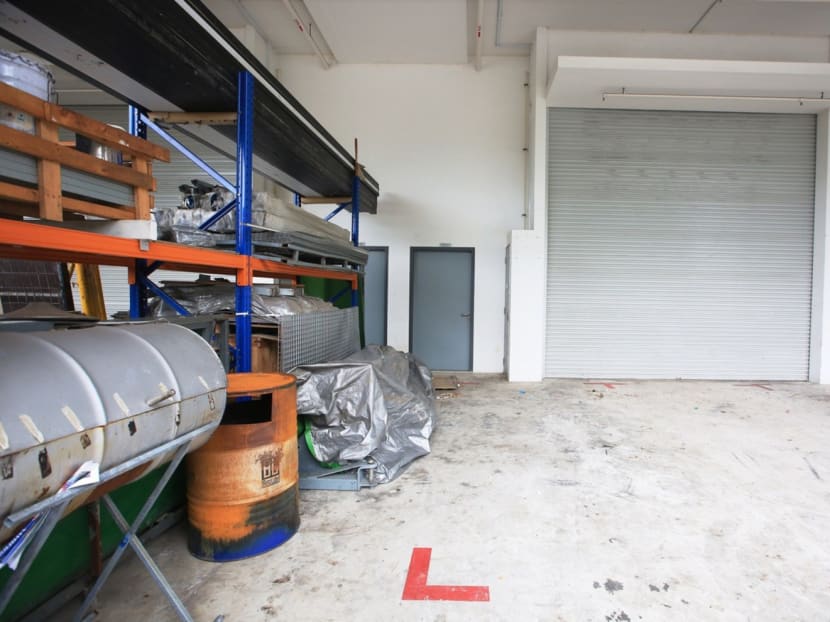No signs furniture seller Royal House had problems, says event organiser
SINGAPORE — Furniture retailer Royal House (The Rome Gallery), which disappeared with thousands of dollars in paid deposits for items that were never delivered, had been actively taking part in home-furnishings fairs, an organiser who used to work with the company said, adding that background checks on the firm did not turn up anything suspicious.
SINGAPORE — Furniture retailer Royal House (The Rome Gallery), which disappeared with thousands of dollars in paid deposits for items that were never delivered, had been actively taking part in home-furnishings fairs, an organiser who used to work with the company said, adding that background checks on the firm did not turn up anything suspicious.
Exhibition organiser Full House Communications told TODAY that it is doing its utmost to help seven to eight affected customers by negotiating with suppliers to get the furniture they had purchased.
SingEx Venues — which manages Singapore Expo, a venue in Changi for exhibitions and conventions — said that it has put the company on a blacklist.
TODAY understands that the managing director of Royal House, known as Gary Chia, has been arrested and was charged yesterday morning.
Shoppers told TODAY previously that the company had set up booths at various furniture fairs at Singapore Expo, and they had paid between S$500 and S$2,288 as deposits to the firm for items they bought. Chia later told customers that the company could not “solve financial difficulties” and “could no longer operate”. He was not contactable after that.
Chia and his aunt had been regularly taking part in such fairs since around last October, the Full House Communications spokesperson said, and Royal House appeared to be “doing very well”.
It was initially helmed by the aunt, but Chia later took the reins. It was only until about August this year that customers started lodging complaints to Singapore Expo.
Noting that such cases were uncommon in the industry and that “this is just one individual case”, the spokesperson added: “We’ve (been) very careful about bringing in clients. We would usually see who they are, go down to the shops, talk to them before we (allocate) booths, and (check their documents).”
Since Royal House was not a first-time participant, the organiser mostly monitored how the firm was doing at the fairs, and whether there were complaints.
Responding to TODAY’s queries about Singapore Expo’s vetting process for such companies, Ms Leela V, director of marketing and communication at SingEx Venues, said that it has put Royal House on its exhibitors’ blacklist for future events.
It pointed out that the firm had taken up exhibition booths at the venue through furniture-fair organisers since late 2015 “without incident”.
However, given that furniture fairs are popular consumer events among the facility’s 600 events a year, Ms Leela said that the firm’s “recent action cannot be condoned”.
Singapore Expo is now in “close communication” with event organisers regarding this recent incident and is “giving similar instructions to all other organisers to have the exhibitor blacklisted”.
It reiterated to all organisers to make it “a standard practice” to review the background of all vendors and businesses, and to conduct the necessary checks on the credentials of their exhibitors, both existing and new.
This is not the first case of a furniture seller who failed to deliver goods after accepting payments.
Last year, the Consumer Association of Singapore (Case) obtained a court order against Mr Chiok Wee Juo to stop him from engaging in unfair practices. He was the sole proprietor of three furniture businesses, Olena, Bez Gallery and The Exquisite Promenade, which had been the subject of 44 complaints since 2008.
Mr Chiok persuaded consumers to make full payment for furniture items at exhibition fairs and then delayed the deliveries, or delivered items that did not conform to the contracts. He later stopped responding to customers’ enquiries.
Mr Seah Seng Choon, executive director of Case, said that these incidents show a need to protect consumers’ prepayments, and the authorities must “look into this matter”. Where possible, Case would work with CaseTrust-accredited businesses to implement prepayment protection schemes for consumers.
To date, the association has handled four cases against Royal House from January to Sept 27. There have also been 54 phone calls, email notices, and walk-in cases of counselling made against the firm so far.







